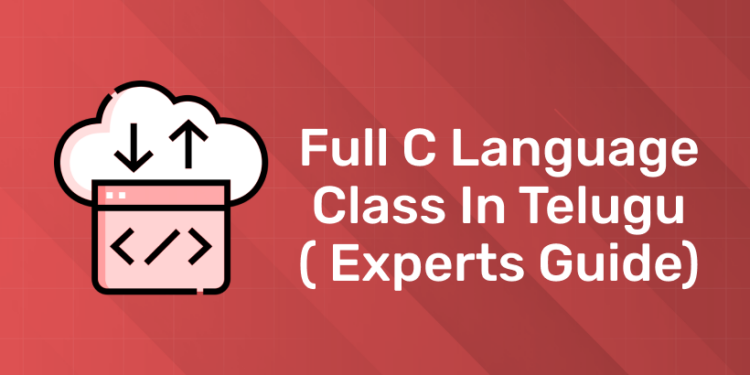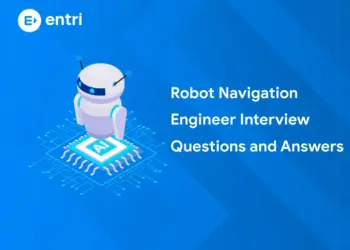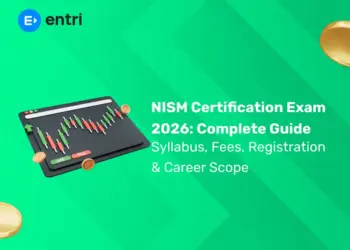Table of Contents
C is one of the earliest high-level programming languages developed by Dennis Richie. Learning C is like laying the foundation of a building as it will help you learn other programming languages like c++, java, python etc. Knowing C language is always an advantage to get a technical job. C is good at making programs run fast and using computer resources well. It’s used a lot for making things like operating systems, games, and tiny computer chips work. In this article we will go through Full C language Class in Telugu ( experts guide).
Learn to code from industry experts! Get a free Demo here!
Full C language Class in Telugu (Experts Guide)
What is C language?
C language, or C, is a computer programming language that was developed in 1970s at Bell Labs. It is a general-purpose, procedural programming language, which means that it follows a step-by-step approach to solve problems. C is known for its simplicity, efficiency, and close-to-hardware capabilities. Hence, it is widely used in system programming, embedded systems, and software development. It also acts as a foundation for many other programming languages and has an important impact on the field of computer science.
What are the Advantages of learning C programming?
Foundation for Understanding Other Languages:
- Learning C makes it easier to grasp other programming languages.
- It provides a solid base for learning languages like C++, Java, and Python.
Efficiency and Performance:
- C programs run efficiently and offer excellent performance.
- Suitable for tasks requiring speed and resource optimization.
Portability:
- C programs can be compiled and run on different platforms.
- Highly portable across various operating systems and architectures.
Versatility:
- Used in a wide range of applications, from system programming to desktop software and games.
- Versatile enough to handle diverse programming tasks.
Systems Programming:
- Commonly used for developing operating systems, device drivers, and firmware.
- Well-suited for tasks involving low-level system interaction.
Close-to-Hardware Capabilities:
- Allows direct access to hardware resources and memory.
- Ideal for tasks requiring low-level control and optimization.
Career Opportunities:
- Proficiency in C programming opens doors to various career paths.
- In-demand skills in industries like software development, embedded systems, and cyber-security.
Understanding Computer Science Concepts:
- Learning C exposes you to fundamental concepts in computer science.
- Helps understand topics like data types, algorithms, and memory management.
Flexibility and Control:
- Provides developers with flexibility and control over their code.
- Features like pointers and manual memory management offer granular control.
Historical and Academic Significance:
- C has a rich history and has significantly influenced other languages.
- Important for understanding the evolution of programming languages and computer science.
What are the Main Concepts of C programming language?
Main Concepts in the C programming language:
Variables and Data Types:
- Variables hold different kinds of information, like numbers or text.
- Data types specify what kind of information a variable can hold, like whole numbers, decimals, or letters.
Operators and Expressions:
- Operators are symbols used for math or logic, like plus or minus.
- Expressions are combinations of variables and operators that give results, like adding two numbers.
Control Structures:
- Control structures decide what parts of the code should run based on conditions, like if a number is greater than another.
- They also help with repeating tasks, like doing something until a condition is met.
Functions:
- Functions are like mini-programs inside a bigger program.
- They do specific tasks, and you can use them over and over.
Arrays and Strings:
- Arrays are lists of things, like a list of numbers or words.
- Strings are just arrays of letters, like a word or a sentence.
Pointers:
- Pointers are like arrows pointing to specific places in the computer’s memory.
- They help with managing memory and working with data efficiently.
Structures and Unions:
- Structures group different kinds of data together, like a person’s name and age.
- Unions are like structures, but they can only hold one piece of data at a time.
File Handling:
- File handling is about reading from and writing to files on the computer.
- You can use it to save and load data, like game progress or user information.
Memory Management:
- Memory management is about using computer memory efficiently.
- It helps with tasks like allocating memory when needed and releasing it when done.
Pre-processor Directives:
- Pre-processor directives are special commands that tell the compiler to do things before compiling the code.
- They’re used for tasks like including code from other files or defining shortcuts for longer code.
| Trending Courses in Telugu | |
| Full stack Development Course in Telugu | Data Science and Machine Learning Course in Telugu |
What are the features of C programming language?
The main features of C programming language are:
Simplicity:
- C is easy to learn with its simple syntax.
- It focuses on the basics without being too complicated.
- Even beginners can understand and use it effectively.
Portability:
- C programs work on different systems without much change.
- This means you can write code once and run it on various computers.
- It’s like having a universal language for programming.
Efficiency:
- C programs run fast and use resources well.
- They’re good for tasks that need speed and careful use of memory.
- This makes C a popular choice for writing programs that run quickly.
Modularity:
- C lets you break big programs into smaller, easier-to-handle parts.
- This makes it easier to write, test, and reuse code.
- It’s like organizing your stuff into neat little boxes.
Static Typing:
- C checks for errors before running your program.
- This helps catch mistakes early and makes your code more reliable.
- It’s like having a safety net to prevent problems.
Pointers and Memory Management:
- C gives you control over how your program uses memory.
- Pointers let you work directly with memory addresses.
- It’s like having a map to find and manage data in your computer’s memory.
Standard Library:
- C comes with a bunch of built-in tools to help you get things done.
- These tools do common tasks like reading/writing files or doing math.
- It’s like having a toolbox full of handy gadgets.
Flexibility:
- C can be used for lots of different kinds of programs.
- You can write code for low-level stuff (like operating systems) or high-level applications (like games).
- It’s like having a Swiss Army knife for programming.
Embedded Systems Support:
- C is popular for programming small devices like micro-controllers or sensors.
- It lets you control hardware directly, which is important for things like robots or smart home gadgets.
- It’s like speaking the language of machines.
Legacy and Industry Adoption:
- C has been around for a long time and is used in many important programs.
- Lots of companies and industries rely on C for building critical systems.
- Learning C gives you access to a big community and lots of resources to help you.
How to learn C programming?
C programming can be learned with following steps:
Understand Basic Concepts:
- Familiarize yourself with basic programming concepts like variables, data types, operators, and control structures.
Set Up Your Development Environment:
- Install a C compiler and an Integrated Development Environment (IDE) on your computer.
- Popular choices include GCC (GNU Compiler Collection) and IDEs like Code::Blocks, Dev-C++, or Visual Studio Code with C/C++ extensions.
Learn the Syntax:
- Study the syntax and grammar of the C language.
- Understand how to write simple programs using C syntax rules.
Practice Writing Code:
- Start writing simple programs to get hands-on experience.
- Practice coding exercises to reinforce your understanding of concepts.
Understand Input and Output:
- Learn how to take input from the user and display output on the screen using standard input/output functions like scanf() and printf().
Explore Control Structures:
- Study control structures such as if-else statements, loops (for, while, do-while), and switch-case statements.
Master Functions:
- Understand the concept of functions in C.
- Learn how to declare, define, and call functions.
- Practice writing modular code by using functions effectively.
Understand Arrays and Strings:
- Study arrays and strings in C.
- Learn how to declare, initialize, and manipulate arrays and strings.
Explore Pointers and Memory Management:
- Understand the concept of pointers and memory addresses in C.
- Learn how to declare, initialize, and use pointers.
- Study dynamic memory allocation functions like malloc(), calloc(), realloc(), and free().
Dive into File Handling:
- Learn how to perform file input/output operations in C.
- Understand file modes, opening and closing files, and reading/writing data to/from files.
Practice Problem Solving:
- Solve coding challenges and exercises to improve your problem-solving skills.
- Practice writing efficient and optimized code.
Explore Advanced Topics:
- Study advanced topics such as structures, unions, enums, typedef, preprocessor directives, and bitwise operators.
Debugging and Error Handling:
- Learn debugging techniques to identify and fix errors in your code.
- Understand error handling mechanisms in C, such as using return codes and error-checking functions.
Read Books and Tutorials:
- Supplement your learning with books, tutorials, and online resources.
- Refer to authoritative sources for in-depth explanations and examples.
Build Projects:
- Apply your knowledge by working on small projects.
- Start with simple projects and gradually increase complexity as you become more proficient.
Join Programming Communities:
- Engage with programming communities and forums to seek help, share knowledge, and collaborate with others.
Practice Regularly:
- Regular practice is essential for mastering C programming.
- Set aside dedicated time for coding practice and experimentation.
Full C language Class in Telugu (Experts Guide)
1: Which of the following data structures allows elements to be added and removed in a Last-In, First-Out (LIFO) order?
Given below are video links to Full C language Class in Telugu:
| Topic | Link |
| Complete C language in 2 hours in Telugu |
Build Better, Together. 🛠️ Join the Entri Coding Community!
Beyond syntax, there’s strategy. 🚀 Join our subreddit for: Exclusive Coding Roadmaps 📍,Project Case Studies 📂 ,Interview Prep Tips 💡and more
👉 Join our Reddit communityFull C language Class in Telugu (Experts Guide): Conclusion
‘C’ being one of the most programming language, it is expected from every candidate who give technical interview to have some basic knowledge of it. In this article we have discussed all the major features and concept of ‘C’ language. A detailed tutorial of ‘C’ in Telugu language was also shared in the form of video.
Full C language Class in Telugu (Experts Guide): FAQs?
1. What is C programming?
- C programming is a way to talk to computers using a language called C.
2. Why should you learn C programming?
- Learning C helps you understand computers better and opens up job opportunities in tech and engineering.
3. How to learn C programming?
- Learn basic concepts, practice regularly, use online resources, and build small projects to apply what you’ve learned.
- Go through this blog for details.
Learn to code from industry experts! Get a free Demo here!












